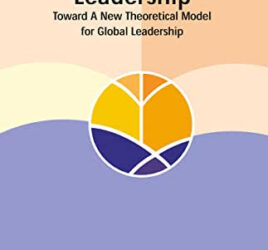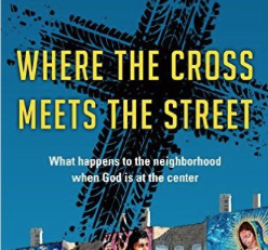In The Spirit of Christ & The Postmodern City, author Viv Grigg continues and contributes to “an ongoing conversation about God and the cities”. The author extends his previous research to develop a theory of “Citywide Transforming Revival,” which is “a concept of synergistic revivals in multiple sectors of a mega-city” resulting “in long-term change of urban vision and values towards the principles of the Kingdom of God”. With Auckland, New Zealand, as a representative post-modern city, Grigg’s focus is primarily theological using a participant-observer approach to his research and analysis.
It was rather refreshing to read an urban theology text written by a non-American author based in one of the world’s most post-modern nations from a Pentecostal-Charismatic perspective. Having lived among the poor of Manila, Kolkata, Sao Paulo, and Los Angeles, the author has frequently returned to New Zealand over the years and remained engaged with the ongoing charismatic revival movement there. Charts and tables throughout the book prove the depth of research and study, as well as the extent of networks and relationships through which the author gathered data first-hand. Grigg was not only a participant-observer in this study, but also frequently initiated gatherings, networks, and engagement with civic leaders.
Although my context in Hanoi, Vietnam, is not what could be described as a post-modern mega-city, I was able to glean much from Grigg’s rich urban theology and expertise in revival movements. For example, the author’s research of the charismatic revival movement raises the question why the revival subsided before it could have a transformational impact on society. The answer points to the quick rise of control by pastoral leaders who introduced institutional structures too early in the process. As a result, leaders who do want to introduce transformation in the various sectors of the city are operating and gathering outside of existing church structures.
One of the last principles for transforming revival Grigg introduces is that of releasing apostolic and prophetic voices outside of church structures. During one exercise, Grigg gathered a group of leaders with apostolic and prophetic giftings to map out “major directions of the church in the city”. Repeating the same exercise with pastoral leaders, no apparent direction emerged until they saw the results of the earlier meeting, which was received with immediate affirmation. This brief story illustrates how gathering local pastors may not lead to a common sense and vision for God’s direction for His church in the city, but that there is a need to tap into the apostolic and prophetic giftings of missional leaders outside of church structures.
It is my intent to develop a sermon series for May-June 2013 that develops a theology of God’s ideal for the city, based on Part 2 of Grigg’s book as well as other works. Secondly, I recently introduced the concept of the domains of society to a group of local leaders. For our following meetings we will start focusing on listening to leaders from each domain. That will be a start to discovering apostolic and prophetic voices outside of the pastoral circles. Lastly, revivals “begin and expand in prayer movements representing a hunger for God”. We cannot and must not meet and strategize without first and foremost praying together for revival.
By Jacob Bloemberg




